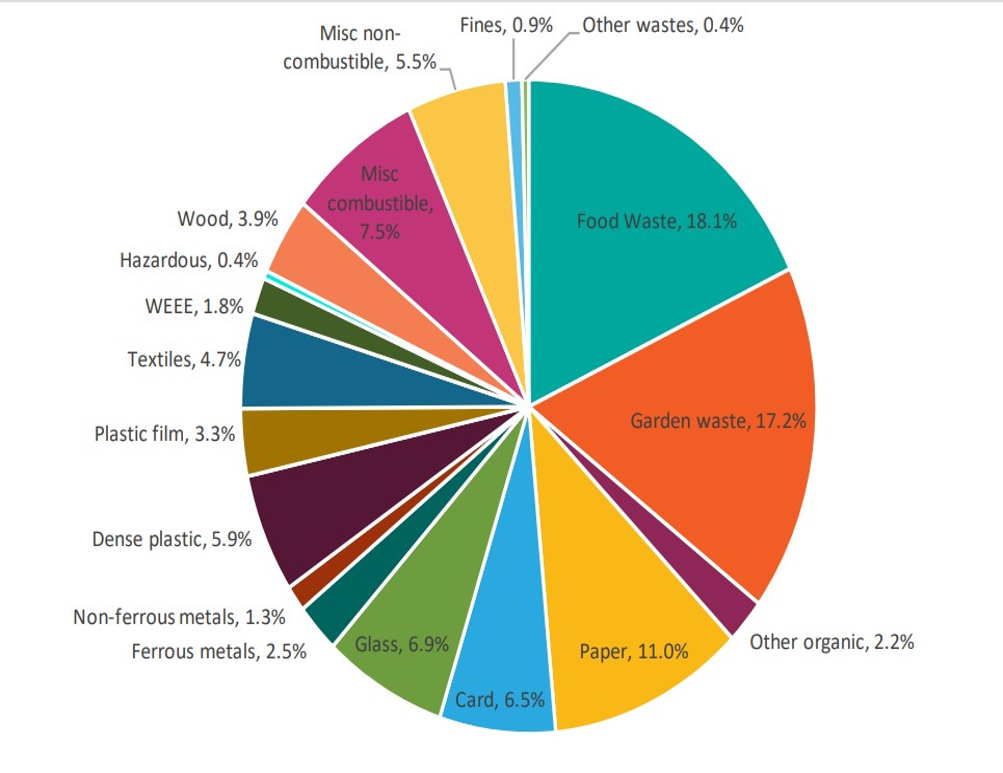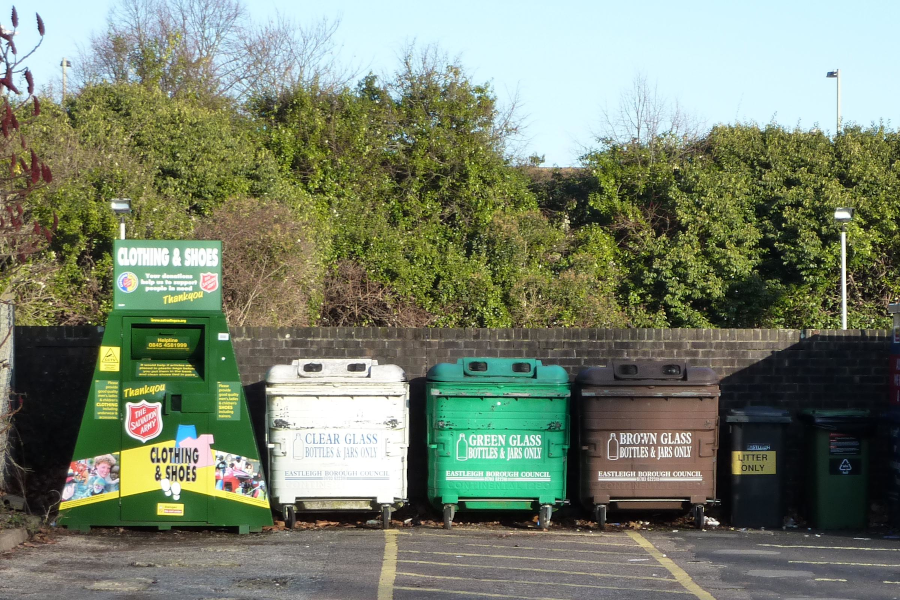Organics account for more than a third of collected household residual and recycled waste in the UK by weight, according to research undertaken by consultancy firm Eunomia on behalf of WRAP.
The study exploring the composition of household waste in the UK for 2017 discovered organic waste combined made up a far greater proportion of collected waste than any other category.
Food waste accounted for 18.1%, while garden waste made up 17.2% and other organics made up 2.2% of household waste in the UK.
Paper and card make up a combined 17.5%, while, at the other end of the scale, hazardous waste made up 0.4% of household and commercial waste and WEEE made up 1.8%.
Eric Bridgwater, Eunomia’s principal consultant involved with the study, said: “In my extensive experience of producing national composition estimates, I can definitively say that these are the most comprehensive to have been published.
“For the first time we have estimates that encompass the whole UK, using a standard methodology and the same categorisation of material types.
“The previous estimates for England (for 2010/11) are now very dated, as are estimates for other nations, so we hope that practitioners across the sector will avail themselves of the outputs of this excellent programme of work.”
Methodology
The study was intended to provide comprehensive and detailed estimates of the quantities of different materials in the recycling and residual household waste streams across the whole of the UK and in commercially generated municipal waste in England.
Waste compositional analyses were carried out in the UK between April 2016 and September 2018.
They were obtained for residual, comingled recycling, food waste, garden waste and mixed organics collected at kerbside and for household waste and recycling centres.
No waste compositional analyses were carried out for other waste streams and so compositional estimates were based on alternative existing sources, including the study carried out in England in 2010/11.
In total, 363 waste compositional analyses were collated, though some were excluded from the analysis as they had been conducted outside the required time period or because they did not meet other selection criteria.
The results of the study can be seen here.
The figures also found most non-ferrous metals, textiles and plastic film were found in residual waste rather than being recycled.
Paper
Eunomia said the most significant change in the composition of kerbside waste in England since 2010/11 was a decrease in paper and a substantial increase in card.
It attributed this change to a decline in the circulation of print media like newspapers and magazines and an increase in online shopping deliveries, many of which are packaged in card.
The post Organics make up 38% of household waste, study says appeared first on letsrecycle.com.
Source: letsrecycle.com Waste Managment





